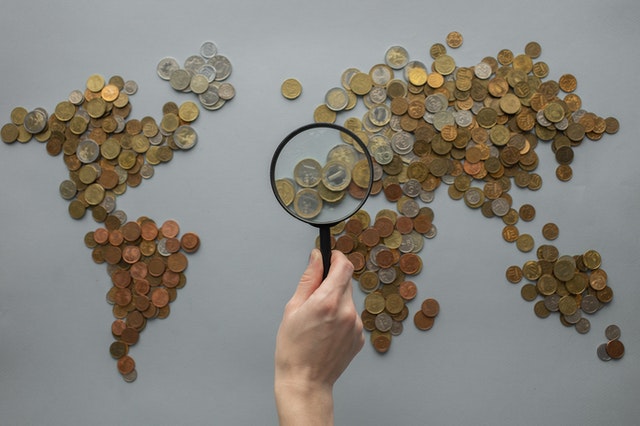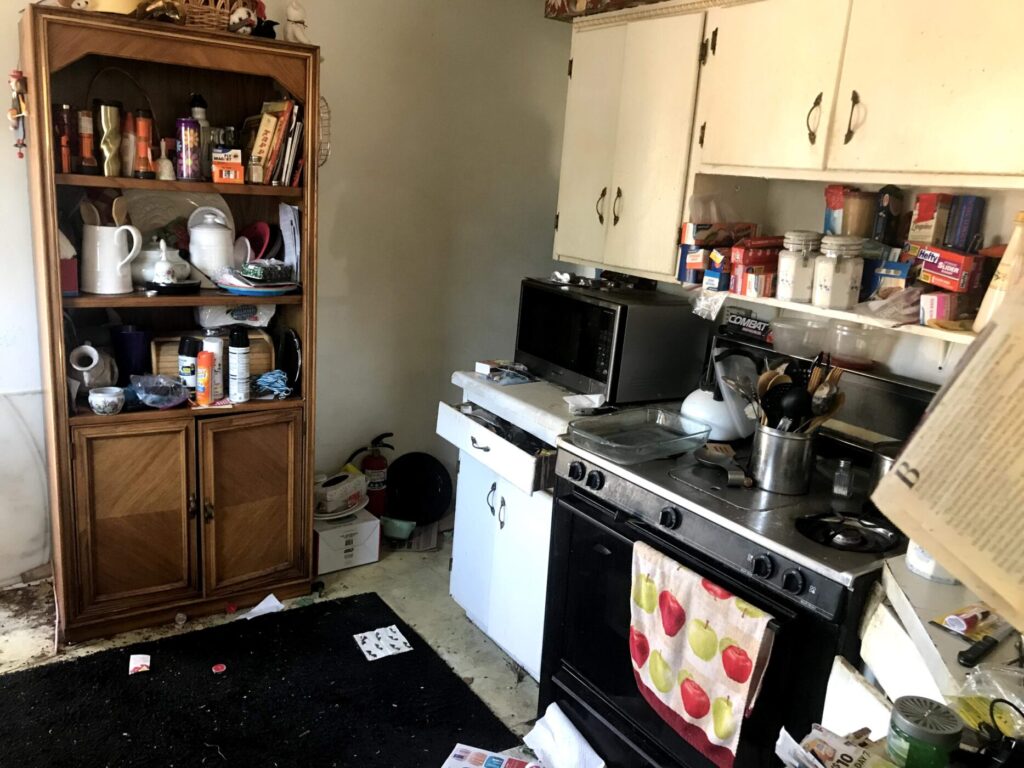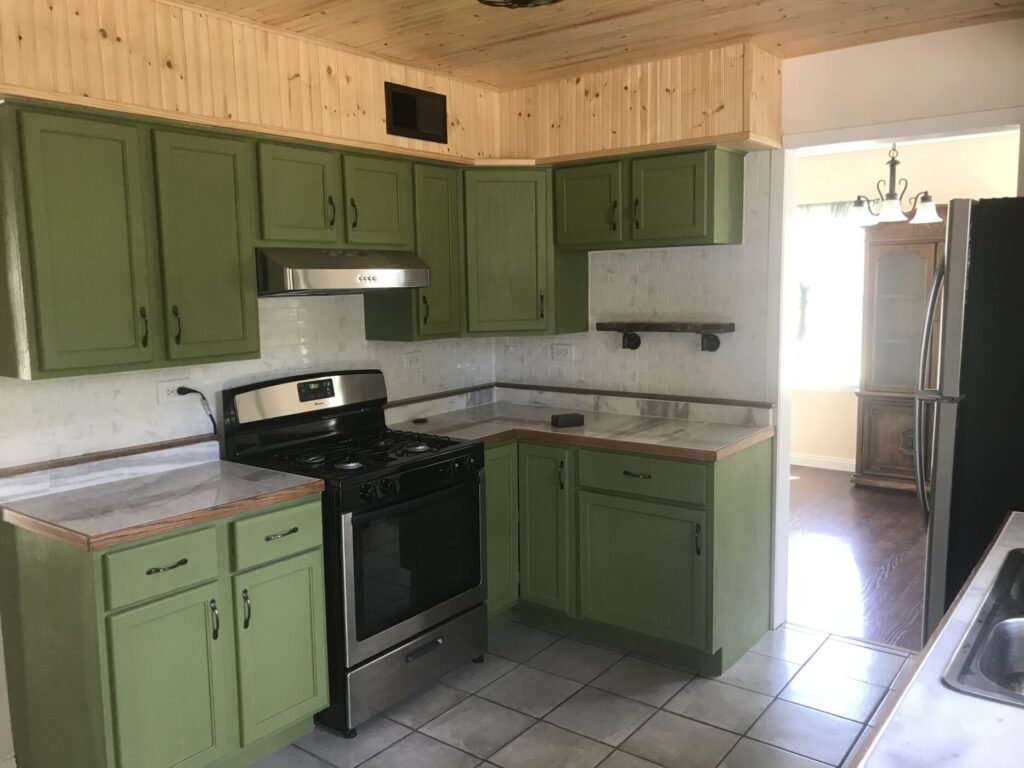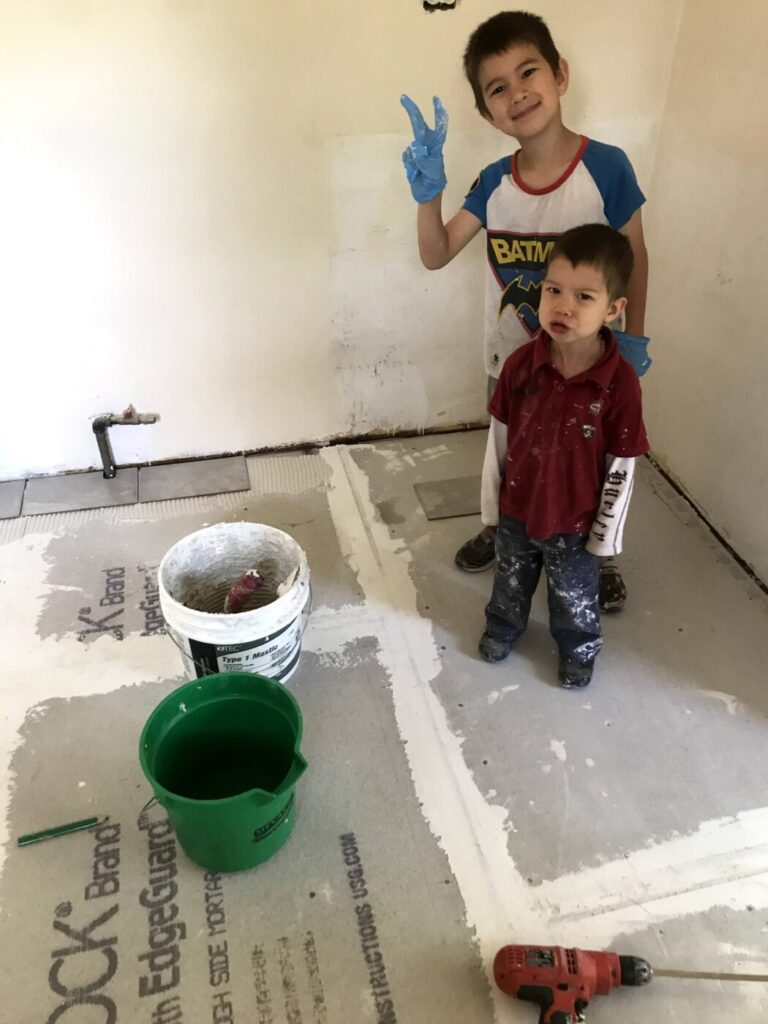Get Rich Slow – Focus On What Gives You Life

Money can free you up to live your dreams. Or it can colonize your mind and your time, distracting you from what gives you life.
Money Talk
Spending the holidays with my mother-in-law, I find myself once again cornered into a well-worn discussion about money. Namely, how to make a lot more of it, “easily”.
It usually takes the form of money-making schemes cloaked in subtle or not so subtle prods. “You can make a lot of money in cryptocurrency!” Or, “I heard you could get rich by drop shipping [insert cheap, mass-produced product].”
Or, “You need to jump in now! Real estate prices are on the rise!” This while we waste a day looking at real estate in Washington State during what was supposed to be a relaxing vacation.
It’s annoying.
It grates on me because I’ve probably already ruminated over a similar scheme and found it wanting in some way. I’ve filed it away in a drawer labelled, “not for me”, and wrenched my mind back to the present. But this conversation plucks it out of it’s drawer to be relitigated.
If I’m being honest, my mother-in-law and I are not so different. I too would love nothing more than to reap a windfall of cash for little more than executing a clever business or internet hack. Or even doing some hard, but highly compensated, hustle. I subconsciously take it for granted that a self-sustaining investment account would solve all my problems.
But I’ve also thought long and hard about most of these ideas. And there is always a catch. Something that would upend my values, make me feel icky. Something that would entail back-benching relationships while I pursue wealth. And the topic of money — who has more, why don’t I have more, how do I get more — can crowd out a more healthy life of the mind.
What Would You Do With a Million Dollars?
But before I attain my blissfully detached state of Zen, let me do a little worldly fantasizing.
What would I do if I had a million dollars? Actually, let’s make it two million. Two million might not seem like that much compared to the salaries of pro athletes, YouTube stars, tech CEOs and so on. But it’s a lot. To put that in perspective, using the 4% rule — a rule of thumb used to calculate the investment funds you would need to cover personal expenses indefinitely — you could spend $80,000 per year basically forever. In other words, you could live comfortably (depending where you live) without needing to work.
So what would I do? I’d travel, of course! I’d quit my job, rent out my house, and start vagabonding. I’d go slow with no end date in mind. I’d spend as much time as I could with my three boys for the short time I have them. I would teach them, discover things with them, go on challenging treks and adventures with them.
I would also devote more time on my hobbies: baking, painting, writing, guitar playing. I’d be free to pursue new interests. Or perhaps volunteer my time to causes I care about.
On a more fundamental level, it would free me from the compromises and small indignities one must endure to remain an employee in good standing. I would no longer need to compromise my health or time with my family to “get ahead” at work.
The financial freedom to walk away from a job would mean opting out of the “arbitrary and competitive games that pit us against each other,” as Rebecca Solnit describes in “A Paradise Built in Hell”, which we are “nearly all forced to play.”
What You Have vs. What You Want
“What would you do if you had a million (or two) dollars?” is a way to trick yourself into answering a more valuable question, which is, “What do I want out of life?” It allows us to work around the psychological hedges we put up to avoid the uncomfortable gap between what we have and what we wish we had.
Removing the constraint of money (and thus effort) allows us to access a part of us that is seemingly buried under an insurmountable landfill of tasks and impossibilities. But once you’ve mined that “what do I want” nugget, the next question is “what would it actually take to get there?”.
Here’s where you arrive at an interesting fork in the road. And this takes some serious reflection (which is the whole point).
One the one hand, you may discover that what you want is surprisingly attainable. You may even find that the road to achieve what you want is satisfying in it’s own right. If that is the case, then make your Asana checklist and get to work! This either means: 1) you don’t need as much money as you think to live your fantasy life, or 2) that the path to get there, not just the “there”, aligns with what is life-giving to you. Or maybe it’s both.
On the other hand, you may find that the effort to get there is too onerous to be worth it. Furthermore, it would require you to give up too much of what you love and currently have. For example, you might predict that reaching your dream of being a successful entrepreneur would require you to be a stranger to your kids for the next five years — an unacceptable tradeoff. In that case, congratulations! You just clarified your values and what you truly want out of life. Being a successful entrepreneur was just something you dreamed about. But once you considered the full cost you realized it wasn’t that important to you after all.
The point is, the journey itself needs to be worth it, not just the destination. Or as Mark Manson colorfully frames it, “what flavor of shit sandwich do you want to eat?” Everything has its downside, its unpleasant aspects. But one goal will be worth the unpleasant taste in your mouth. The others won’t.
What Does It Take Travel the World?
This article exists on a travel blog and I already revealed that travel would be a big component of enjoying my two million dollar windfall. So let’s pause to examine what a family of five really needs to travel the world for, let’s say, a year. (Spoiler alert: it doesn’t take anywhere near a million dollars.)
There is no one way to travel the world and there is no one way to prepare for it. It all depends on a variety of personal factors, including but not limited to:
- Where do you wish to travel? For us, areas with a low cost of living, namely South America and East Asia.
- How big is your family? We are two adults and three children ages three, five, and eight.
- How will you travel? We plan to fly to a part of the world and then spend several months at a time overlanding. We like the idea of a converted van, but… maybe when the nest is bit emptier. For now we’ll sleep in beds under a roof.
- What is your risk tolerance? We are generally risk averse and want to cover all plausible outcomes such as being jobless for a while when we return, overspending while traveling, or having some expensive accident to deal with. We also don’t want to return financially ruined. We have three college tuitions and a retirement to consider.
- What is your standard of comfort? We are cool flying coach and roughing it, especially for temporary things like transportation. That said, we’re not the soundest of sleepers and we may need to pony up for a separate room for the kids on our longer stays.
- Will you sell it all, or leave a home to come back to? It would break our heart to sell our home. This makes our preparations quite a bit more complicated, but it also comes with some financial benefits.
- What is your current work and financial situation? I am a software developer and my wife a freelance journalist and author. My wife’s career will continue uninterrupted and may even accelerate. Being a programmer is conducive to remote work, but I’ve never developed any freelance business having only worked for one company post-college. At the start of our preparations, our savings and income was very modest given the size of our family and the cost of living in the Chicago area. Since then, we’ve built up a pretty healthy financial situation.
So how much money will it take to achieve our “million-dollar” lifestyle? I’ll spare you the details, which I’ll share in a future post once we’ve begun our travels and have better handle on the true costs.
But my rough estimate is that we’ll spend about $60,000 over the course of a year. That’s $4,000 per month plus another $12,000 for our major flights. Our numbers feel like an over-estimate, which is good, because it’s easy to overspend or overlook necessary expenses when budgeting. I also want to ensure that we have six months of savings left when we return in case a job doesn’t materialize the moment we get home.
We will pay for it with a combination of income from Liuan’s writing, renting out our home on AirBnB (about half of which will go toward our mortgage, property taxes, utilities, and management), and money from a rental we have half a stake in with my mother-in-law. We expect that income to cover us about halfway. The rest will come from savings. Our current savings should cover any shortfalls in our income and provide a buffer for landing back on our feet when we return.
We also figure we can reduce expenses through volunteering and work-away opportunities.
How You Get There Matters
So it turns out my million dollar dream won’t cost anywhere near a million dollars. Saving enough money isn’t exactly something we could do in a few months or even a couple years. But it was totally within our reach if we really wanted it. In truth, it required a ton of effort and creativity to get there; not to mention an ever evolving Asana list. But it was fun!
The point is, how you get there matters.
In American culture we are bombarded with success stories. More precisely, stories about gaining enormous wealth.
Sometimes they are spurious, like pyramid schemes. Or they are high risk, like day trading. Some would require a time machine to go back ten years and invest in Bitcoin or Tesla. Others, like e-commerce, have been exploited to death. The message is always the same: it’s possible to get rich by working smarter, not harder — so get hustling, you lazy moron!
But that’s a decision we all have to personally make. We have to decide what’s most important to us. Does the idea of learning about e-commerce and supply chains and dealing with customers and building a brand sound fun to you? Then go for it! Some people make it big that way.
For me, I’d rather buy a fixer upper and renovate it while battling a cockroach infestation. That might sound horrible to you, but for me it was a fun way to spend a Saturday. Not exactly a get-rich-quick scheme, but it made us made us more financially secure and it was in my wheelhouse. Again, it’s all about your preferred flavor of shit sandwich. In my case, that flavor was cockroach shit; but that might be taking the analogy too literally.
Children Change Everything
Children add a another variable to the equation.
So-called get-rich-quick schemes are rarely as quick or as easy as they seem. In the grand scheme, making several million dollars in five to ten years sounds great! But what if it meant that the first three years you’ll make next to nothing and work around the clock? And even at the end of all that, there is still no guarantee of a return on investment. That’s why you need to enjoy it. Something has to keep you going while you’re in the early stages of building your empire.
Of course, it’s all about delayed gratification.
But with kids, how long is it ok to put them aside so you can achieve your aspirations? Ten years is more than half their childhood! Even one year seems too much. Children change so much in a year.
When you are a young adult, it seems like you have all the time in the world and nothing to lose. But with children, delay means loss of precious time and a unique era in your family life.
When I bought the fixer-upper with the cockroaches, I thought I could offset the loss of family time by having the boys come and help. And they did, at least in the beginning. But there were times I couldn’t bring them because it was too dangerous, too dusty, or I just plain needed to get stuff done.
After a whirlwind five months, we handed the keys to the family that would move into our renovated house. We were relieved that it was over and I was proud of myself for pulling it off. It was a huge stride toward supporting ourselves in our upcoming long-term travel. And yet, I couldn’t help but detect a hint of regret for some missed opportunities even for that short period of time.



Enough
All that to say, it’s complicated. And it’s highly personal. Even within one individual’s life, priorities and values can shift.
So let me end by making a confession. I am painfully ambivalent about money. This is no surprise given my Evangelical upbringing where money is both the “root of all evil,” and understood to be synonymous with “blessing.” In my adult years, this ambivalence has taken a more worldly turn. I crave the freedom that money promises. But with three young boys changing by the day, my life is now or never. I cannot delay gratification without missing too much about what’s important to me.
Also, if I identify all the things that are life-giving to me — time with my family, creativity in solitude, wandering — I find more wealth is better than less, but there really is a point where I have enough. And enough turns out to be far short of filthy rich.
“Enough” is a blasphemous word in this culture of hustle. But lately, I have been giving myself permission to utter it. To turn away from the siren song of just a few more years, just one more business idea, and instead get to the business of living.
It means being OK with appearing mediocre in the opinion of the masters, the upper management, and my mother-in-law. I might not be the envy of the Jones’s, but why was that ever the goal?
I have nothing against getting wealthy, as long as it’s gained in a way that’s life-giving and, God forbid, doesn’t go against your conscience. Some people, like this woman in Brazil, seem to have it all: they are insanely wealthy, they live by their principles, and they lead amazing lives.
But I also give myself, and you the reader, permission to define success in terms of something other than wealth. Some people may not need that much to make their dreams come true. For others, riches might even be antithetical to the good life. And for others still, chasing the next money-making scheme will seem like a distraction from greater life-giving pursuits.






